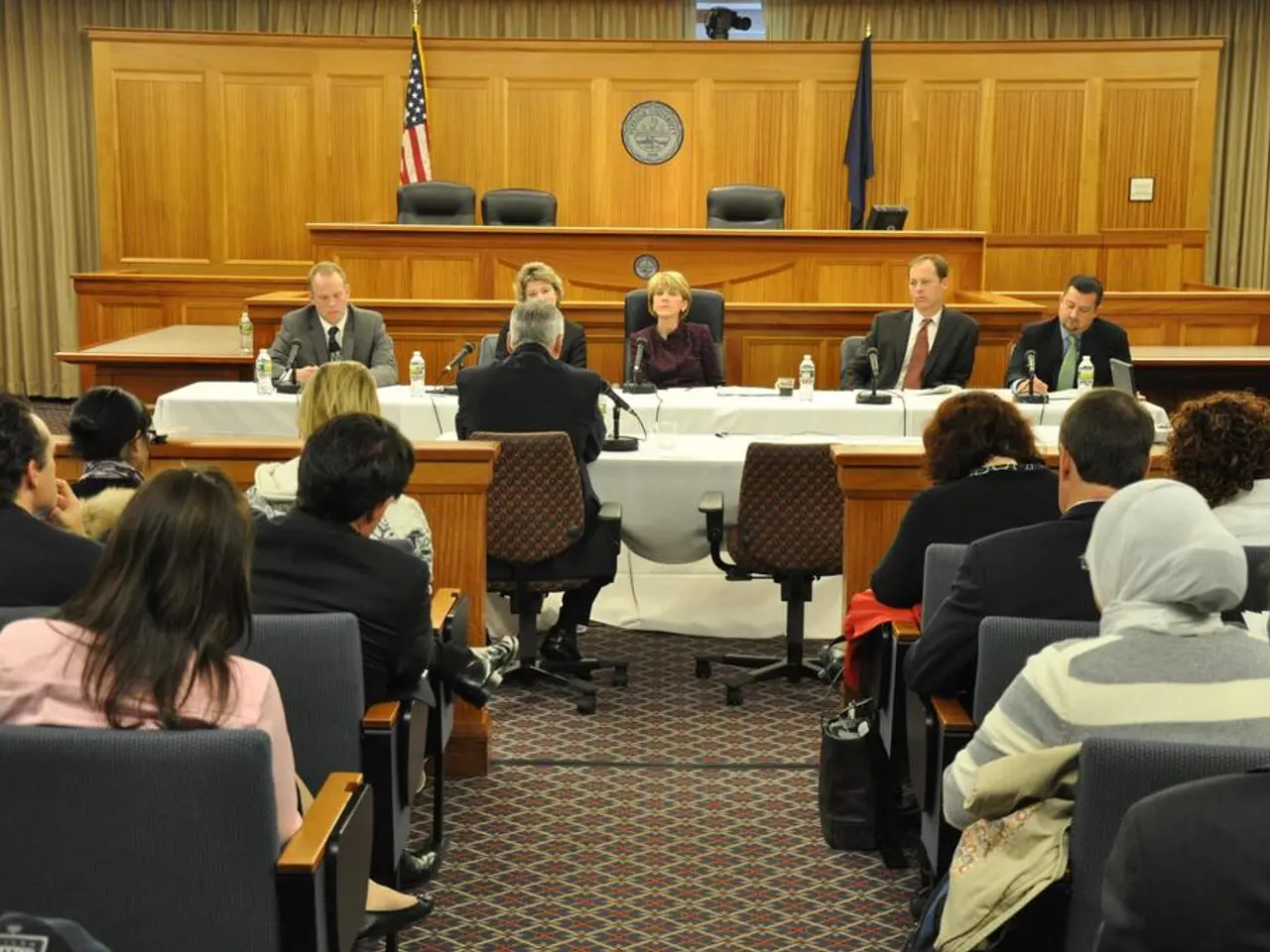Berlin elects Kai Wegner as its third-term mayor
In a significant shift for Berlin's political landscape, Kai Wegner, a CDU politician, was elected as the city's mayor on a grand coalition ticket with the SPD. The election, held on February 12, saw the CDU emerge victorious with 28.2% of the votes, marking a slight shift towards centre-right politics.
The new coalition, with each party holding five senators, follows a common model in German politics, where the largest centre-right (CDU) and centre-left (SPD) parties form a stable government. This cooperation, despite ideological differences, allows for policy moderation and compromise, as seen in Berlin's focus on key issues such as social welfare, urban development, and public services.
The grand coalition's stability and broad political support are evident in Berlin, where it represents a majority in the House of Representatives, with 86 votes. This contrasts with the opposition, comprising the Greens, Left, and AfD, who hold 73 votes.
The election of Wegner was not without uncertainty, given potential opposition from within the Social Democrats. However, the SPD came in second with 18.4% of the votes, and the factions of CDU, SPD, Greens, and Left have agreed on candidates for the constitutional judges, indicating a degree of cooperation.
Interestingly, the Left Party, which received the most votes in the capital, won a ward in Neukölln for the first time. Meanwhile, the Greens, who trailed behind the SPD by only 53 votes, are poised to play a significant role in future Berlin politics.
The CDU's victory and the subsequent coalition with the SPD reflect a trend towards pragmatic, centrist leadership in Berlin. This model has been a feature of German politics for some time, with grand coalitions at the federal level also characterised by stability, policy moderation, and internal friction.
As the CDU aims to win the federal election, the success of this grand coalition in Berlin could serve as a blueprint for future political alliances, demonstrating the potential for productive cooperation between parties with differing ideologies.
The new coalition, comprising five senators each from the CDU and SPD, adopts a common model in German politics, promoting policy moderation and compromise on key issues such as social welfare, urban development, and public services. The CDU's victory and subsequent grand coalition with the SPD represents a trend towards pragmatic, centrist leadership, similar to federal-level coalitions known for stability, policy moderation, and internal friction. This model could serve as a blueprint for future political alliances, demonstrating the potential for productive cooperation between parties with differing ideologies, as seen in policy-and-legislation discussions and general-news reports.




